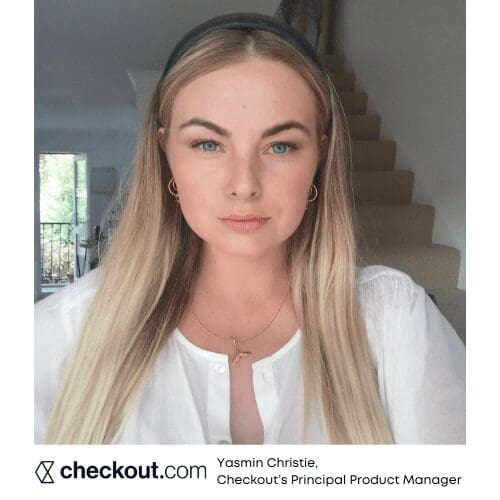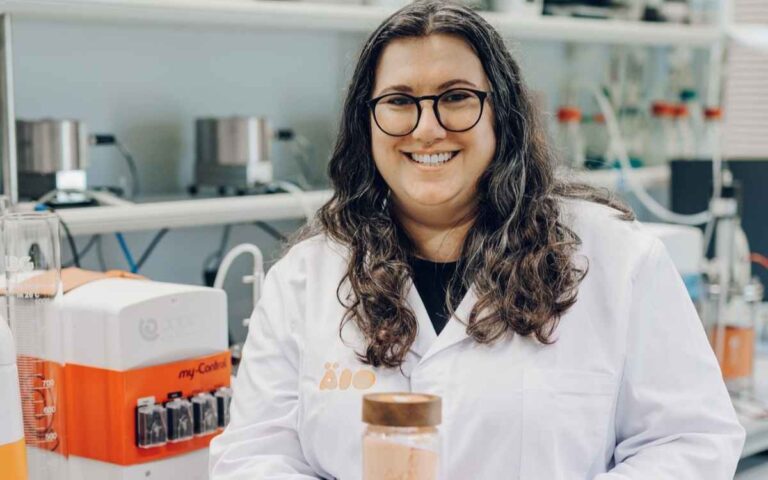What has your career journey been like, so far?
I originally started my career in an FX brokerage. My first role was actually before payments even went digital! I was there for the financial crash and then also for the evolution of payments going online. So I really got to witness, first-hand that digital curve, and all of the challenges that come along with that in the payment space.
I was really immersed in what we would now refer to as the “customer” in most cases, from a checkout perspective. As I was working for a payments company, we had the privilege of working with small to large businesses and consumers on their payment journey. This involved a lot of in-depth complexities of cross-border payments for an exchange.
Back then, Product didn’t really exist as the function it is today, but when we undertook an acquisition of a company, we had the opportunity to evolve our internal systems. I took on the role of an SME working within the business operations and very quickly found a love for evolving technology.
I then went into a startup, which was quite cool – a lot less red tape, and I wore many hats! I’d always been quite back-office, so I moved into front office and took on a commercial role before then moving into implementation. I would engage with merchants around the usability side of things, what that meant for their business and understand the end-to-end experience in depth. So as that experience evolved, I actually fell into more of a Product focused role.
Tell us about your current product role as Principal Product Manager at Checkout?
I joined Checkout in 2019 – hired for my SME background in Payouts – Foreign Exchange. I’ve since spent a lot of time building up our Card and Bank Payouts products as well our FX and FinCrime teams.
Then, towards the end of 2021, I transitioned into a Principal role, taking a step out of leadership and going into more focused, detailed SME work – solving really complex problems.
You’ve fundamentally changed how the product function supports Checkout as a business – could you tell us more about this?
My original objective for joining Checkout was to diversify our product set. We were traditionally an acquiring business. It was all funds in. And so my job was to create a new dimension to our product portfolio, move money in different directions, and unlock new solutions such as Marketplaces.
With that, comes a number of things: different regulatory frameworks, different perspective from our merchants. It was quite a big task. And so that’s why we built out the four teams that we did. But when I actually take a step back and look at this transformation, the way that I see it is it’s all about the “royal we”. I’m very lucky to work with incredibly talented people that are very, very passionate about what they do and why they’re doing it.
The product function has really evolved in Checkout overall, especially since I’ve been there, but it starts with strong leadership and company strategy. We have a very, very well-structured leadership team who set a very clear company strategy and direction. That sets you up for success because everybody’s working towards the same goal.

Change isn’t always easy. The key to change is not the change itself. It’s how you implement that change. All companies go through different phases of maturity and growth.
For example, those four teams that I built previously no longer exist in that way, they’re now formed into different dimensions, different leadership, and that’s positive change because it shows that we evolved the team into almost a business-as-usual function. And they’ve now become part of different structures. They’re now within the greater Checkout; it’s no longer a startup function.
One of the key parts of this transformation is the customer experience and really making sure we focus on the right problems and that aligns to the company strategy. We have really good structures around how we set objectives and how we all collaborate across the business to make sure we’re working towards that same goal. This makes everything from the stakeholder engagement, to structuring your strategy much more streamlined and much more effective. And it allows you to be able to expand, and in different dimensions – be that your product portfolio or the geographies you work within. It allows you to do that all simultaneously in a really well-tuned way.
So I wouldn’t necessarily say that I’ve had the biggest impact. I think I’ve been set up for success. By a brilliant operating model. With fantastic people. And when you combine that with the merchants that we work with, the things that our merchants are doing in the industry that we’re in, there’s not a lot of places to fail there. So I think the success is broader than maybe my contribution!
Product teams are often able to revolutionise technology – do you think that not having pure coding skills is a benefit or a challenge?
Personally, I can’t code, but I would love to be able to.
Product and engineering are two very unique crafts. Technically speaking, you could be able to do both. I think that would be an exceptional craft. But what fun would that be?!
More minds and more approaches are better than one. The true beauty of products is a Product team that has different dimensions in it. The ability to code or not code is one factor of a very successful team. It’s really about having those different perspectives, different opinions, different skillsets – working towards and creating the vision. This is the beauty of what makes up a team and that is what drives success.
What sort of impact do you think diversity, equity and inclusion has, when it comes to building product teams?
Without question, it is one of the most important responsibilities of a leader building a team -if not, the most important. We’re quite fortunate at Checkout, that there’s a lot of investment that goes into education around this as well. Through the natural evolution of our team we have many different people from different cultures, different walks of life.
I’ve had the opportunity to see how that can elevate you as a team and provide that different depth of contribution because people’s true value is in who they are and who they are stems into all aspects of their life. I think if you can be conscious in your decision-making, provide a platform where you need to, for someone to access an opportunity, then you should be doing that.
And so when it comes to the acquisition and interview process, it’s your responsibility as leader to make sure that you are interviewing diverse panels, making sure that you really, and truly are seeking out opportunities for people and on behalf of people, no matter how good their access to that opportunity might be.
To conclude:
There’s not one person or one person’s background that makes a significant difference. It’s the harmony of them together, their collective brain power that really makes the difference.








